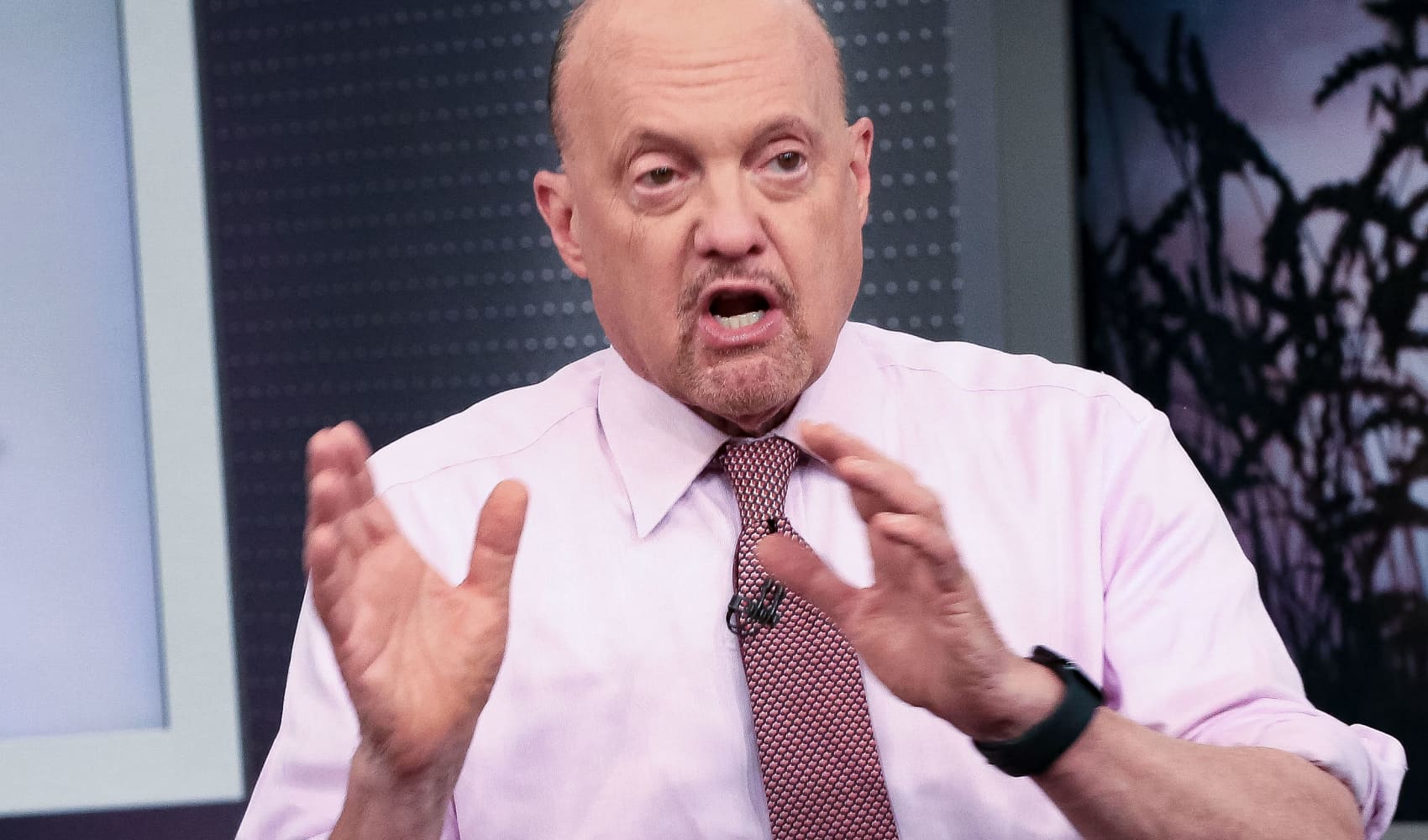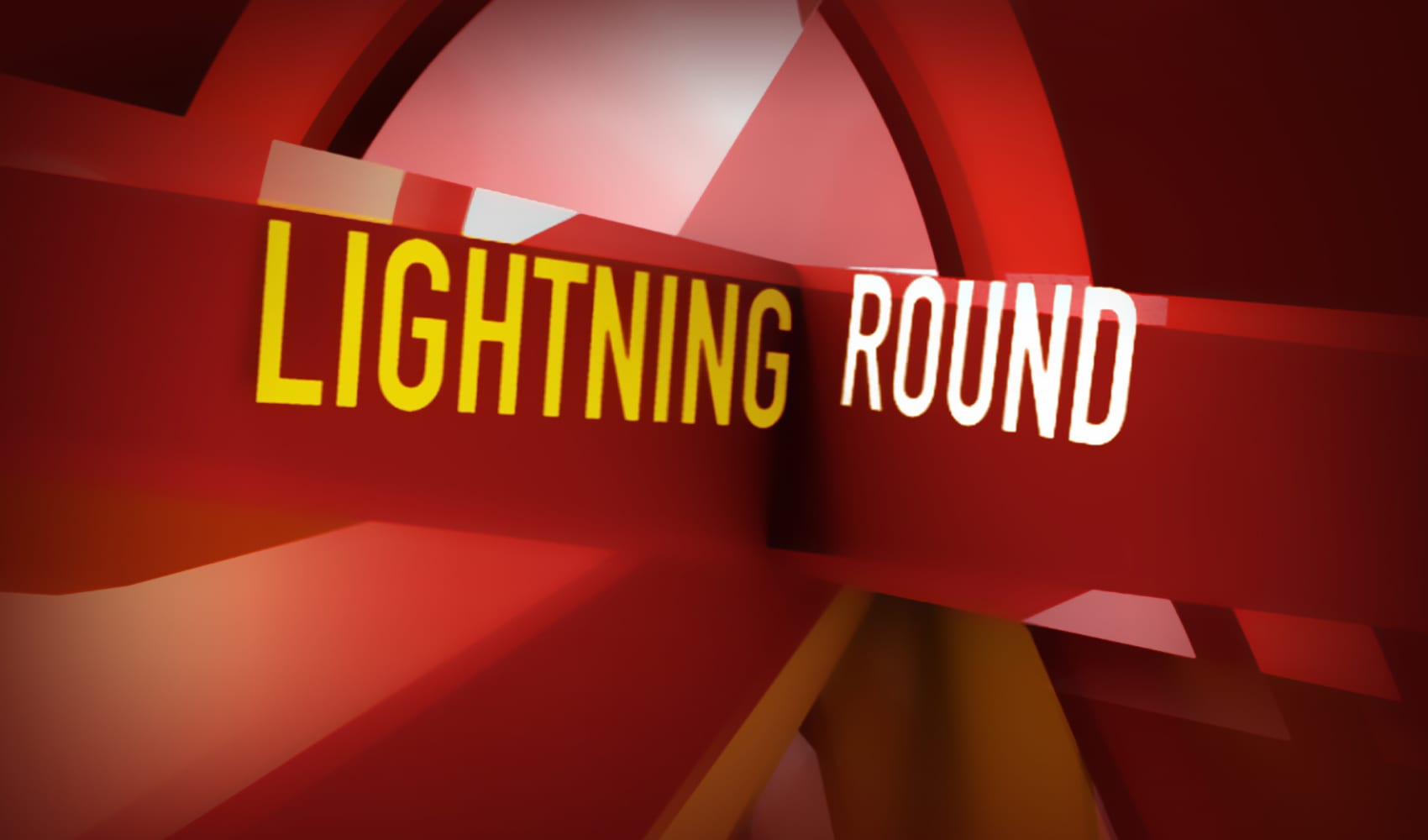
A Polish Leopard 2PL tank during a Defender Europe 2022 military exercise of NATO troops including those from France, the U.S. and Poland, at the military range in Bemowo Piskie, near Orzysz, Poland, on May 24, 2022.
- Poland has said it will no longer supply its neighbor Ukraine with weapons, as a rift over agricultural exports deepens.
- Warsaw has been one of Kyiv's staunchest allies since mutual foe Russia invaded Ukraine in February 2022. Poland has donated weaponry, tanks, Soviet-era fighter jets and military training to Ukraine's armed forces.
- A recent dispute over Ukraine's agricultural exports has threatened to break the alliance.
Poland has said it will no longer supply its neighbor Ukraine with weapons, as a rift over agricultural exports deepens.
"We no longer transfer weapons to [Ukraine], because we are now arming Poland," Mateusz Morawiecki, Poland's prime minister, said Wednesday on the X social media platform, previously known as Twitter, according to a Google translation.
"Ukraine is defending itself against the brutal Russian attack and I understand this situation, but as I said, we will protect our country," he added.
We've got the news you need to know to start your day. Sign up for the First & 4Most morning newsletter — delivered to your inbox daily. >Sign up here.
Poland is helping Ukraine to fight what Morawiecki called the "Russian barbarian," but cannot agree to any destabilization of the Polish market by Ukrainian grain imports, he said, in further Google-translated comments carried by Polish news agency Polska Agencja Prasowa.
The comments followed a dramatic deterioration of relations between Kyiv and Warsaw this week.
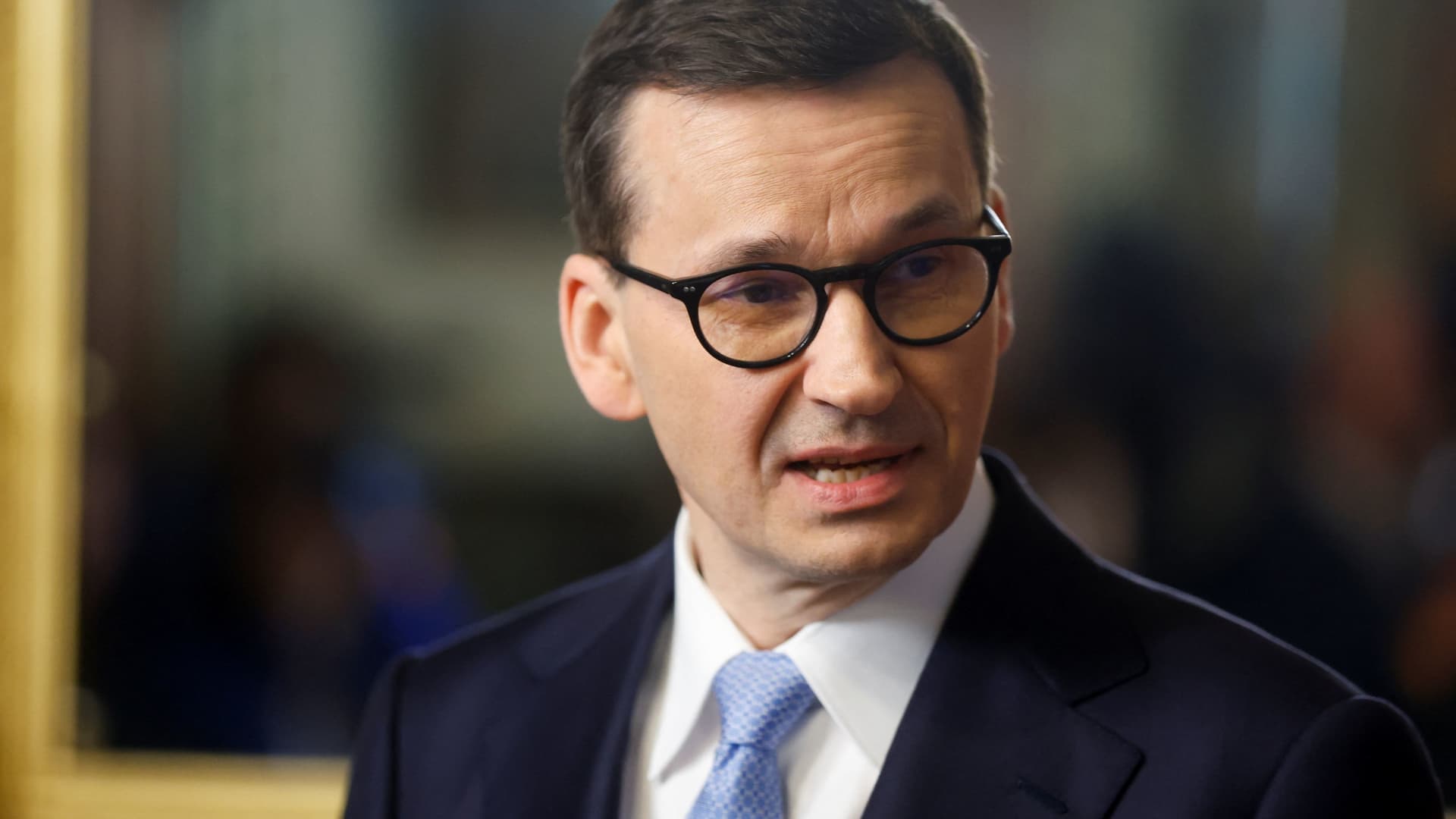
Warsaw has been one of Kyiv's staunchest allies since mutual foe Russia invaded Ukraine in February 2022. Poland has donated a wide range of weaponry to Kyiv, from modern Leopard 2 tanks to Soviet-era fighter jets, as well as delivering military training to Ukraine's armed forces.
Money Report
A recent dispute over Ukraine's agricultural exports — which have had to be transferred via Eastern European countries while Russia has effectively blockaded grain ships leaving the country's ports — has threatened to break the alliance, however.
The high-profile falling-out came to a head Monday, as Ukraine filed lawsuits against a number of countries, including Poland, at the World Trade Organization over the bans on Ukrainian grain imports.
Then on Tuesday, Ukraine's president, Volodymyr Zelenskyy, made a thinly veiled swipe at Ukraine's Eastern European allies, telling the United Nations General Assembly that Kyiv is "working hard to preserve the land routes for grain exports and it is alarming to see how some in Europe play out solidarity in a political theatre – making [a] thriller from the grain. They may seem to play their own role but in fact, they are helping set the stage to a Moscow actor."
That drew a sharp rebuke from Poland, with Warsaw summoning Ukraine's ambassador over the remarks. Following the meeting, the Polish Foreign Ministry in a statement said Deputy Foreign Minister Pawel Jablonski "communicated Poland's strong protest over the statements made yesterday by President Volodymyr Zelenskyy at the UN General Assembly which suggested that some EU countries simulate solidarity while indirectly supporting Russia."
The statement added that Poland "stressed that this claim is wrong and particularly unjustified in Poland's case, given that our country has supported Ukraine since the first days of war."
Ukraine has not publicly commented on Poland's latest announcement on stopping weaponry transfers. CNBC has reached out to the Foreign Ministry of Ukraine.
In an apparent bid to soften Warsaw's position, Poland's state asset minister said Thursday that Poland is not currently supplying arms to Ukraine but "will see" about future deliveries.
"At the moment it is as the prime minister said, in the future we will see," Jacek Sasin told private broadcaster Radio Plus when asked about Prime Minister Morawiecki's comments.
What happened?
Tensions have been rising between Poland and Ukraine for a number of months.
The majority of Ukraine's agricultural exports — mainly consisting of grains, oilseeds and other goods — were transported via the Black Sea, over the course of the Black Sea Grain Initiative — a deal struck between Moscow and Kyiv that enabled grain-laden cargo ships to depart from three Ukrainian ports without being attacked.
After the agreement collapsed in July, other rail, road and river routes set up by the EU, known as "Solidarity Lanes," became the only way to get Ukraine's grain out of the country relatively safely.
Warsaw and a number of its Eastern European neighbors have repeatedly complained that a glut of Ukrainian agricultural exports has ended up in their own countries due to logistical bottlenecks in the Solidarity Lanes, driving down national grain prices and hurting local farmers.
The EU's executive arm, the European Commission, attempted to mediate earlier this year by allowing Eastern European countries — namely, Poland, Romania, Bulgaria, Hungary and Slovakia — to introduce import restrictions on Ukrainian wheat, corn, rapeseed and sunflower exports. This meant that these nations were effectively just transit countries through which Ukrainian grains were transported before being distributed throughout Europe and beyond.
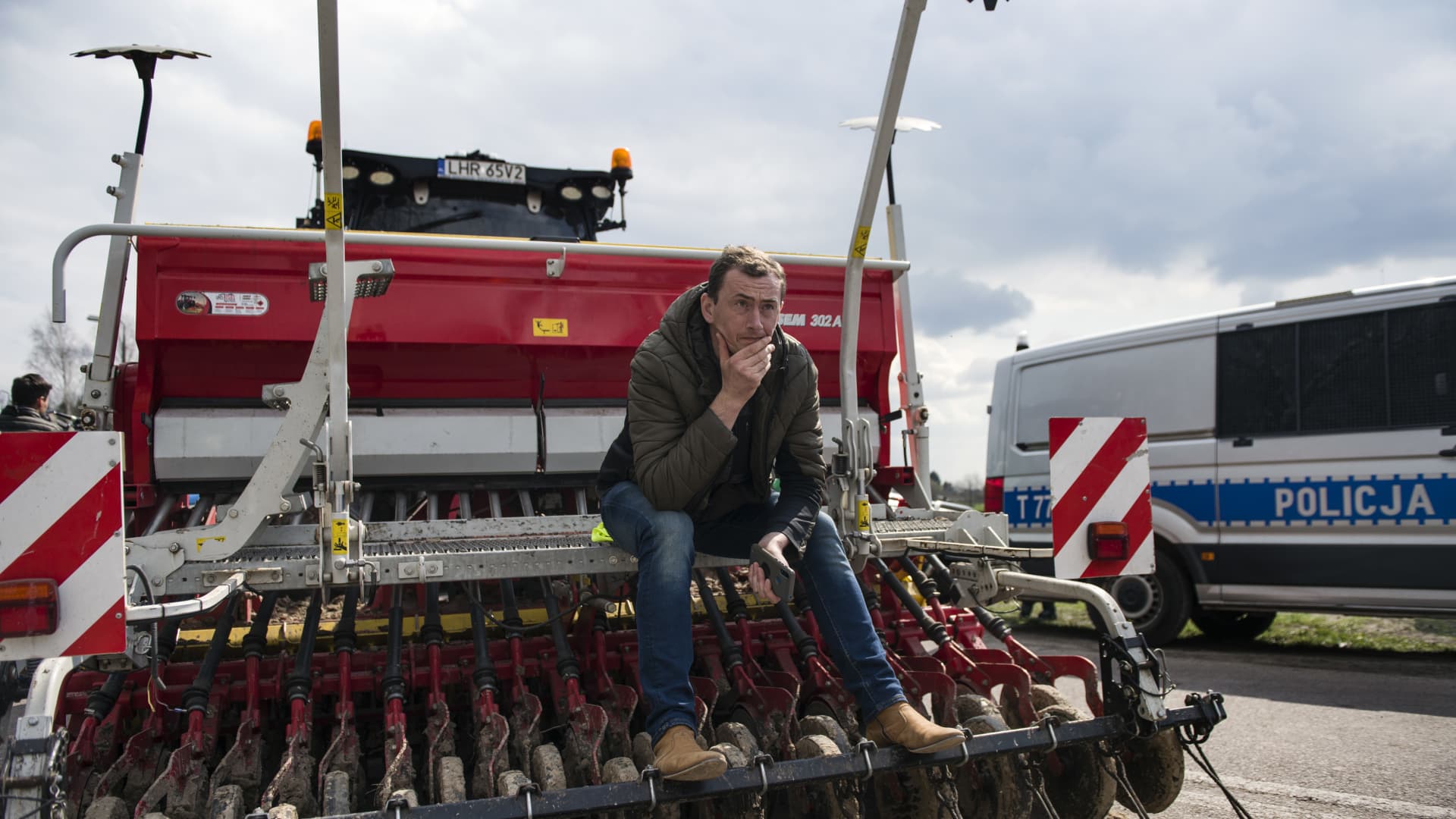
But the commission refused to extend those limits last week, renewing tensions with Hungary, Poland and Slovakia, who said they would defy the relaxation of import rules and maintain restrictions.
That led to an eruption of anger and indignation in Kyiv, with the government filing complaints with the WTO against Warsaw, Bratislava and Budapest on Monday.
"It is fundamentally important for us to prove that individual member states cannot ban the import of Ukrainian goods. That is why we file lawsuits against them in the WTO," Yulia Svyrydenko, a senior Ukrainian government minister, said in a statement on the Economy Ministry's website Monday.
"At the same time, we hope that these states will lift their restrictions and we will not have to clarify the relationship in the courts for a long time. We need solidarity with them and protection of farmers' interests," Svyrydenko added.
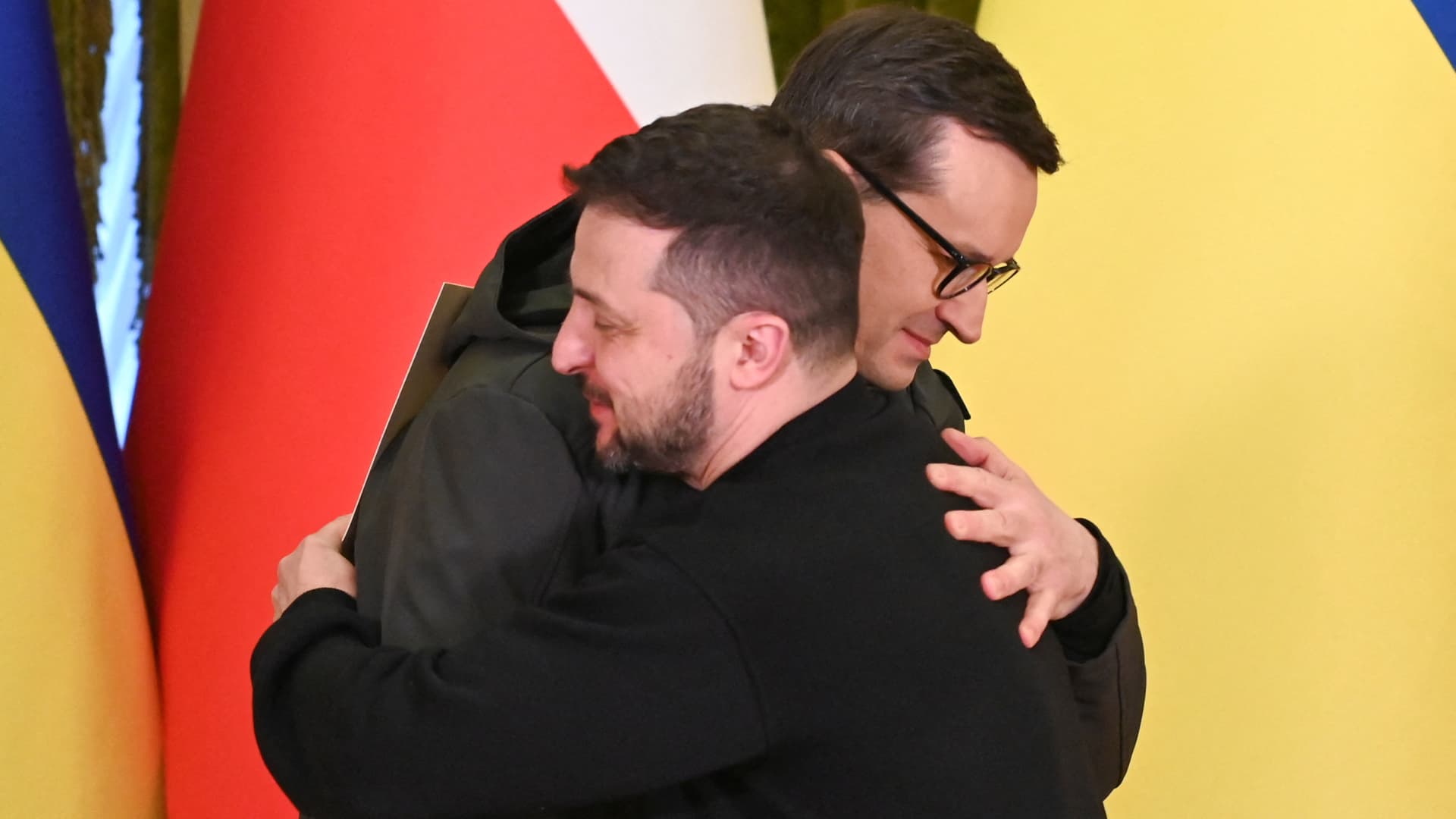
The "unilateral ban" on the import of Ukrainian agricultural products by Poland, Slovakia and Hungary, was hurting domestic exporters, Svyrydenko said, adding they "have already suffered and continue to suffer significant losses due to downtime, additional costs and the impossibility of fulfilling foreign economic agreements."
There were signs Thursday that efforts were being made to find a solution to the diplomatic crisis.
On Thursday, Ukraine's agricultural minister, Mykola Solskyi, had a telephone conversation with his Polish counterpart Robert Telus in which "the ministers discussed the situation, as well as Ukraine's proposal for its settlement, and agreed to find a solution that takes into account the interests of both countries."
"The parties confirmed the close and constructive relations that they have repeatedly demonstrated and agreed, taking this into account, to work out an option for cooperation on export issues in the near future" a statement on Ukraine's Agricultural Ministry said.
"The next negotiations will take place in the coming days, during which the issues prepared by both sides will be discussed. Also, the Polish side will study the Ukrainian export plan and prepare its proposals for it."


